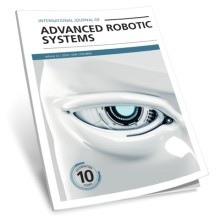
Robohub.org
The CORAL group: Interview with Joydeep Biswas and Brian Coltin
Our newest video interview features PhD student Joydeep Biswas, who works with Dr. Manuela Veloso’s CORAL research group, and scientist Brian Coltin, who is at NASA’s Ames Intelligent Research group since graduating from his PhD at Carnegie Mellon under Dr. Manuela Veloso’s supervision. The interview sees both scientists answering questions together in regard to CORAL’s recent projects, the types of robot task they work on and the hardware and software they use while being interviewed separately on their love for robotics and what got them to choose this career path in the first place.
CORAL lab’s research focuses on developing further the CORAL’s CoBot robots, type of robots which are aware of their perceptual, physical, and reasoning limitations and proactively ask for help from humans, for example for object manipulation actions. While Brian Colin focused on robot scheduling before transferring to NASA’s Ames Intelligent Robotics Group, Joydeep Biswas studies how the robots handle changes in a human environment. Both researchers’ general interest is to improve robotic systems’ autonomy and intelligence in the real world. Joydeep also participates in CORAL’s robot soccer project and maintains all lab’s robot hardware. At CORAL, they mainly work with CoBots, soccer playing robots, Baxters and Naos. Among the most challenging tasks they’re facing are obstacle avoidance and the need for a CoBot to rely on and autonomously ask for a human’s help when adapting to the environment. Biswas and Coltin give us their views on how these challenges are being handled and what will probably be the turning point in achieving fully autonomous robots.
Another interesting point made in the interview refers to the current state of robotics research published in today’s robotics publications. According to our interviewees, there’s quite a bit of research overlapping among research groups where researchers seem to rediscover separately over and over again the exact same challenges; from this arises the need to work more on collaborative efforts to limit the time expenditure on solving problems already tackled by other robotic labs. In this view, as underlined by Biswas, publishing more in Open Access should allow a larger audience of robotic professionals as well as anyone interested in working with the latest robotic softwares and hardwares to freely access the latest research published by labs such as CORAL. In addition to that, Biswas forwards the need to make it easier for roboticists to publish code and data (both closed binary and open data) to be shared with a wider audience who could then run it directly on their computers – an avenue to be explored by Open Access publications such as our own International Journal of Advanced Robotic Systems.
In the last part of the interview, we asked Coltin and Biswas separately about their personal challenges in pursuing their PhD. degrees and who influenced them the most in their career. You may be surprised with who they name as their favorite roboticists, and what they admire the most in their current adviser, Dr. Veloso. Less surprising is their favorite fictional robot – which we will let you discover for yourself.
Biswas J, Coltin B. IJARS Video Series: Joydeep Biswas and Brian Coltin interview – CORAL research group (Carnegie Mellon University) [online video]. International Journal of Advanced Robotic Systems, 2014, 11:V4. DOI: 10.5772/59985
If you liked this interview, you may also be interested in:
- Novel robots for gait and arm rehabilitation: Interview with Robert Riener
- Robotics then and now: Interview with Peter Corke
See all the latest robotics news on Robohub, or sign up for our weekly newsletter.
tags: c-Research-Innovation, CMU, human-robot interaction, Manuela Veloso, video




